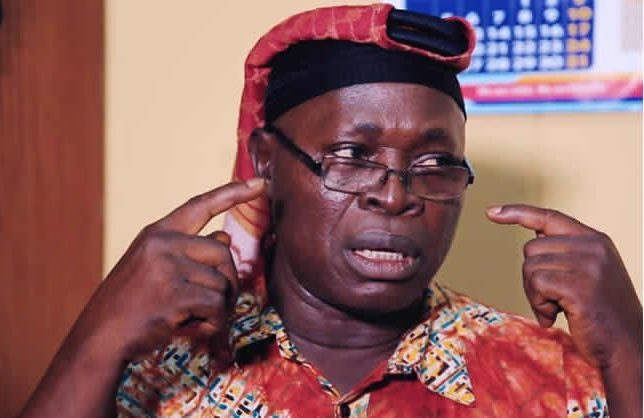Corruption And Impunity, Nigeria’s Major Problems: A Response To Mr.President Goodluck Jonathan By Anti-Corruption Groups
1ST OCTOBER, 2013
For almost two hours on Sunday 29thof September. 2013, president Goodluck Jonathan
responded to questions from journalists and Nigerians on twitter on various national questions ranging from insecurity, power, 2015 elections to cost of governance, and corruption.
President Jonathan agreed that there is corruption in some sectors of the Nigerian government; the situation is not as bad as it is being portrayed .While speaking on corruption, Mr. Jonathan said his government is winning the war against corruption, and that the perception people has about corruption in Nigeria is exaggerated.
We the undersigned CSOs are using this medium to let the Mr. President knows that “Perception is different from reality”. The latest Transparency International rating had ranked Nigeria as one of the most corrupt countries in the world. The president argued that the global perception about Nigeria’s corruption was influenced by continuous Nigerian media reports and those by civil society groups in the country.
Mr. Jonathan claimed that corruption in the country is still at a tolerable level came amidst several corruption allegations made against officials of his administration. We reject this statement made by Mr. President that CORRUPTION IN NIGERIA IS AT A TOLERABLE LEVEL.
Among the unresolved corruption cases facing the Jonathan administration is its handling of the Malabu $1.1 billion scandal. The Jonathan administration approved the transfer of the money to Malabu, a company controlled by convicted money launderer, Dan Etete, in 2011, as payment for an oil block Mr. Etete fraudulently acquired from Nigeria. The transfer occurred despite that Nigeria’s main anti-corruption agency, the EFCC, was already investigating Malabu for registration fraud and despite Mr. Etete’s earlier
conviction in France.
The president’s claim also came despite the massive corruption in the petroleum sector supervised by the Minister of Petroleum, Diezani Alison- Madueke. At least N300 billion was fraudulently collected as subsidy by petroleum marketers in 2011, with active connivance of some petroleum ministry officials. Several reports including that by a presidential committee, NEITI Audit reports and the House of Representatives subsidy investigation revealed the unprecedented level of corruption in the sector.
However, below are some of the incessant probes that do not yield public reports under this current administration and rob Nigerian citizens of their commonwealth and scarce
resources. In spite of this, many well documented reports on corruption suggest there is laxity and lack of interest to deal with corruption in Nigeria .The following reports confirmed our concerns:
1. The KPMG report in which the Nigeria National Petroleum Corporation (NNPC) was indicted for corrupt practices and short charging Nigerians.
2. The Nigeria Extractive Industries Transparency Initiative (NEITI) audit report exposing 10 years of corruption in the upstream and downstream sectors of the oil and gas
industry.
3. The uncalled for reconciliation of justice on the Malabu Oil Deal with juicy payment of
$1,092,040,000 to the other party by Shell on the order of Mr. President, is clearly fraudulent, misappropriation of public fund and abuse of office.
4. The probe of the Pension Fund Management by the Senate Joint Committee on Public Service and Establishment, State and Local Government Administration.
5. The case of corruption and money laundering trial against ex-Delta State Governor James Ibori in the UK for which he has reportedly pleaded guilty despite the acquittal granted him by a Nigerian court.
6. The SEC probe and the alarming revelations of corruption in the capital market.
7. The probe of the oil subsidy regime by an Ad hoc committee of the House of Representatives.
8. The bribe scandal against Hon. Faruk Lawan, chairman of the House Adhoc Committee on Petroleum Subsidy.
9. The impunity by some state governors in their refusal to allow for local governments council elections.
10. The non-prosecution of those indicted in the Haliburton LNG bribery scandal; the same where the Americans involved had been prosecuted and charged in their country.
11. The integrity of the legislature has come under serious suspicion with the too frequent accusation of the probe committee members of bribery.
12. The revelation by Shell Petroleum Development Company that Nigeria has since 2009 lost $1.5 billion yearly to crude oil theft. All these among others.
The corruption war must be waged by more committed crop of public officers as well as by ordinary citizens. The EFCC, CCB, and ICPC alone can only be creating occasional drama, while avid corruption makes nonsense of every good policy of any agency, including the present administration. That the President Goodluck Jonathan should take a stand against corruption and stop pretending that the corruption is been exaggerated and live by example in the fight against corruption.
The under signed CSOs are worried with the rising profile of official corruption in Nigeria under this administration. The systematic failure has its root in the manifestation of corruption at all level which undermines development and promotes insecurity and poverty in our country.
SIGNED
1. Advocacy Nigeria
2. Alliance for Credible Elections (ACE)
3. African Centre for Media & Information Literacy
4. Centre for Information Technology and Development(CITAD)
5. Centre for Democracy and Development(CDD)
6. Centre for Development of Civil Society
7. Citizen’s Forum for Constitutional Forum (CFCR)
8. Citizens Center for Integrated Development & Social Rights(CCIDESOR)
9. Civil Society Legislative Advocacy Centre (CISLAC)
10.Community Action For Popular Participation(CAPP)
11.Environmental
Rights Action(ERA)
12.National
Procurement Watch Platform(NPWP)
13.Pan-African Strategic and Policy Research Centre(PANAFSTRAC)
14. Partners on Electoral Reform
15.Say NO Campaign – Nigeria
16.Resource Centre For Human Rights& Civil Education(CHRICED)
17.United Action for Democracy (UAD)
18.West Africa Civil Society Forum (WACSOF-Nigeria)
19.Zero – Corruption Coalition (ZCC)
20.Women Advocates’ Research and Documentation Center (WARDC)



